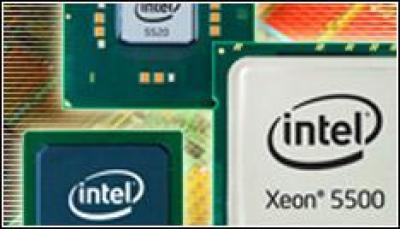EC Criticised For “Maladministration” Of Intel Antitrust Case

A watchdog has admonished the EC for its lax approach to evidence collection in the Intel antitrust investigation. Meanwhile Intel pumps millions into exascale computing in France
The European Commission has been publicly criticised by an ombudsman for sloppy information collection methods in its antitrust investigation of Intel.
In a statement published this week, European ombudsman, P. Nikiforos Diamandouros said that he had found “maladministration” in the case due to the the Commission’s failure to make proper notes on a meeting with computer maker Dell as part of the case against Intel. “I hope that my decision in this case will help the Commission to improve its administrative procedures by ensuring that its future antitrust investigations are fully documented,” Diamandouros commented.
The ombudsman’s investigation was based on a complaint submitted by Intel on the 10 July 2008 that the commission did not keep minutes of a meeting with a senior Dell executive on 23 August 2006. Diamandouros found that the Commission did not make proper notes and did not keep an copy of the agenda of the meeting. Although the ombudsman said this amounted to maladministration, he did not confirm that this had infringed Intel’s rights of defence.
Intel also complained that the commission had “encouraged Dell to enter into an information exchange agreement with micro-chip producer AMD”. Due to the lack of any direct evidence of this taking place, the ombudsman did not uphold Intel’s second complaint but did say that the commission had again failed to keep proper records. “Proper notes should be made of any meetings or telephone calls with third parties concerning important procedural issues,” the report stated.
Despite the ongoing legal wrangles between the EC and Intel, the chip-maker agreed on 12 November to settle its dispute with AMD including the antitrust and cross-license issues, in a deal which will see Intel hand over $1.25 billion (£756 million) to its rival and agree to a set of business practices.
The European Commission in May fined Intel $1.45 billion (£876 million) for anticompetitive practices. In addition, the N.Y. Attorney General’s Office in early November filed a lawsuit against Intel that echoed the European complaints, essentially suggesting that Intel used a combination of bribery and coercion to ensure that OEMs, including Dell, Hewlett-Packard and IBM, limited their use of AMD products.
In other news, in a move which may help placate European authorities and win-back some good will, Intel this week announced an agreement to fund a multi-million euro research facility in France. The Exascale Computing Research Cente will “explore how to build high-performance computing systems with a thousand times the performance of today’s fastest supercomputers,” the company stated.
Intel is developing the project in cooperation with the French Atomic Energy Commission (Commissariat à l’Énergie Atomique), the Versailles Saint-Quentin-en-Yvelines University (Université de Versailles Saint-Quentin-en-Yvelines) and the French National High-Performance Computing Agency (Grand Equipement National de Calcul Intensif) which will match the chip-makers investment in the research lab.
“France has taken a leading role in driving high-performance computing research in Europe,” said Steve Pawlowski, Intel senior fellow and general manager of Intel Architecture Group’s central architecture and planning. “We chose to work with these three organizations because of their world-class software competency in exascale and high-performance computing.”
According to Intel, exascale computing will lead to the development of more sophisticated approaches to supercomputing. “For example in health care this capability should enable highly sophisticated genome calculations, enabling individualised patient treatment, or simulation of cell interactions to provide new cancer treatments,” the company stated.